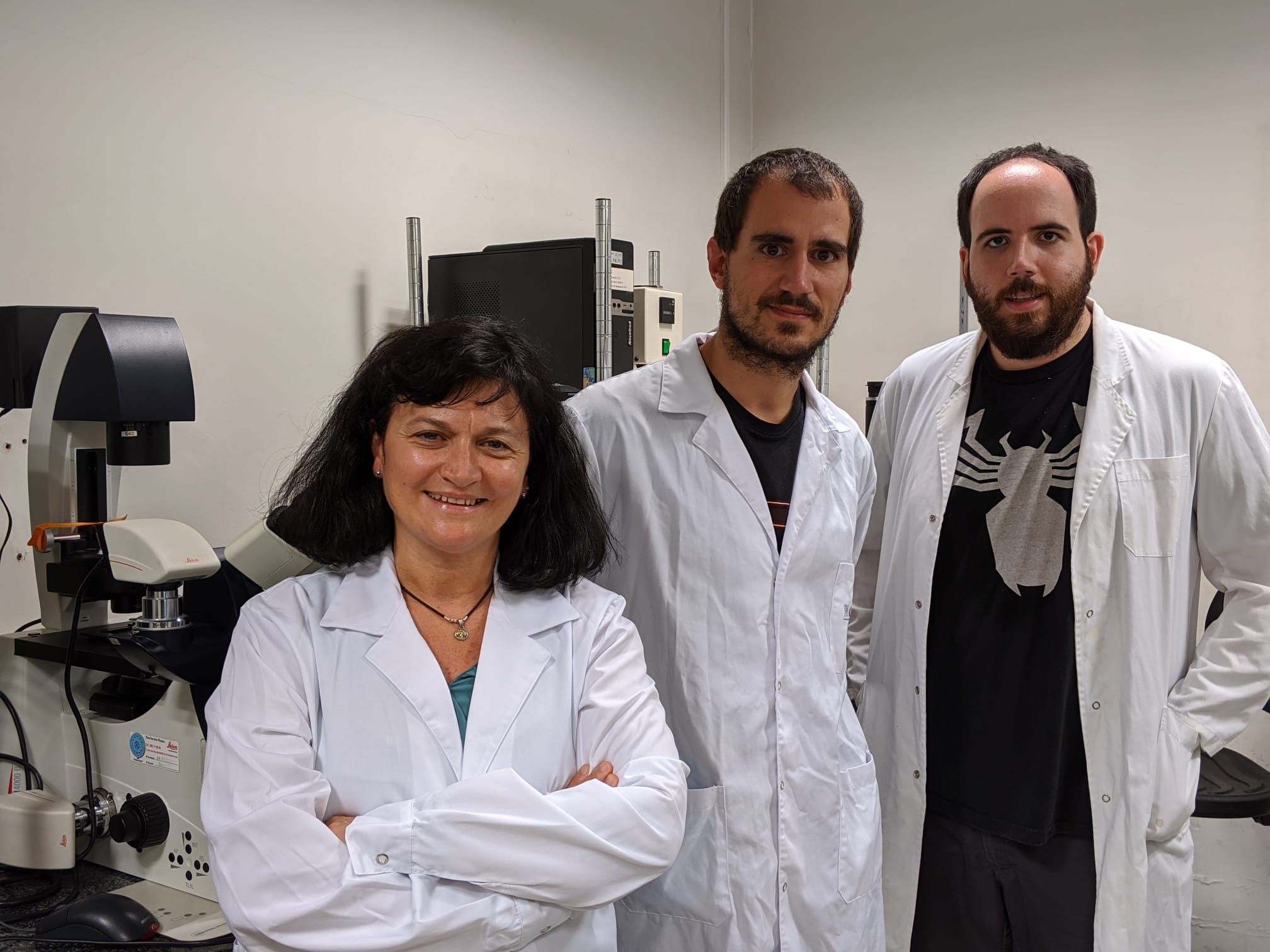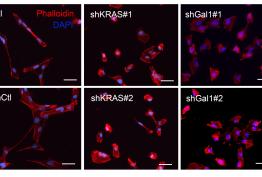A study led by the CSIC's Institute of Biomedical Research of Barcelona (IIBB), and associated with IDIBAPS, has tested a new treatment for Parkinson's disease in pre-clinical trials. Preliminary results are promising and could open the way to new therapies to delay the development of the disease.
It is based on a new oligonucleotide molecule designed by the researchers themselves to reduce synthesis and prevent the accumulation of the alpha-synuclein protein, one of the differential markers of Parkinson's disease. The study, led by Analia Bortolozzi, CSIC scientist and CIBERSAM researcher at the Institute of Biomedical Research of Barcelona (IIBB) and IDIBAPS, is published in the EBioMedicine journal, from The Lancet.
Reduce alpha-synuclein to its reasonable level
It has long been known that increased alpha-synuclein protein expression and accumulation in some regions of the brain, forming the so-called Lewy bodies, is an early sign of the cascade of cellular mechanisms that in last term leads to degeneration of dopaminergic neurons. Consequently, in recent years many research treatments are aimed at reducing this overexpression of alpha-synuclein using oligonucleotides.
“The problem is that if the reduction is excessive in the entire brain, the treatment has harmful and toxic side effects, just the opposite of what is expected,” clarifies Analia Bortolozzi. This is what happens with some oligonucleotides that have been tested. Excess alpha-synuclein is associated with the development of Parkinson's disease, but its excessive defect also leads to a loss of its function, as this protein controls the normal process of neurotransmission, which is necessary for any activity: movement, memory, learning, or emotions.
Bortolozzi's team, in collaboration with scientists from the biotech company n-Life Therapeutics, have synthesized a new oligonucleotide sequence against alpha-synuclein combined with indatralin. The latter is a small molecule that has a high affinity for a membrane transporter that is selectively localized in dopaminergic neurons, so that the oligonucleotide targets and acts specifically in these neurons.
The team has evaluated the efficacy of the new treatment on a mouse model genetically modified to overexpress the human form of the protein alpha-synuclein and showing symptoms of Parkinson's disease. This model has been developed by the same researchers, with the support of the Michael J. Fox Foundation.
After four weeks of administering the molecule intracerebroventricularly or intranasally, the results revealed that excessive synthesis and accumulation of alpha-synuclein is reduced in dopaminergic neurons and interconnected brain areas such as the prefrontal cortex and striatum, leading to recovery of normal dopamine transmission.
This alleviates the deficits in dopamine function associated with alpha-synuclein pathology that occur in the early stages of the disease, even when there is no loss of neurons.
The positive results encouraged the team to evaluate the efficacy of the treatment in another animal model, whose brain anatomy is closer to that of human. For this, they established a collaboration with Dr. Jeffrey Kordower of the Rush University Medical Center, University of Chicago, where they tested the molecule in monkeys Rhesus sp. elderly showing accumulation of alpha-synuclein. The results are very encouraging since only the expression of alpha-synuclein is reduced in dopaminergic neurons of the midbrain, without showing toxicity, argues Rubén Pavia-Collado, second author of the study.
The next steps of the research, explains Analia Bortolozzi, are to optimize the molecule to increase the potency and duration of the effect after intranasal administration. It would be, explain the scientists, to give this molecule temporarily enough time to reduce the synthesis of alpha-synuclein, and then administer it in combination with other treatments.
For diseases like Parkinson's, the accumulation of alpha-synuclein protein can occur for decades before the symptoms of the disease become visible. This new oligonucleotide treatment, the researchers remark, offers an early intervention strategy to delay the progression of Parkinson's disease. It could be applied in conjunction with current immunotherapy trials aimed at removing excess alpha-synuclein protein from the brain, or those treatments with antiaggregation agents to prevent the formation of high molecular weight toxic species of the same protein.
Scientists from the Center for Biomedical Research in the Mental Health Network (CIBERSAM) and Neurodegenerative Diseases (CIBERNED), the Federal University of Paraná (Brazil), Vall d'Hebron Research Institute (Barcelona) and the Catalan Institution for Research and Advanced Studies (ICREA).
Interview of Cienciaes: http://cienciaes.com/entrevistas/2020/09/06/parkinson/
AUTHORS: Diana Alarcón-Arís, Rubén Pavia-Collado, Lluis Miquel-Rio,
Valentín Coppola-Segovia, Albert Ferrés-Coy, Esther Ruiz-Bronchal, Mireia Galofré,
Verónica Paz, Leticia Campa, Raquel Revilla, Andrés Montefeltro, Jeffrey H. Kordower,
Miquel Vila, Francesc Artigas, Analia Bortolozzi







